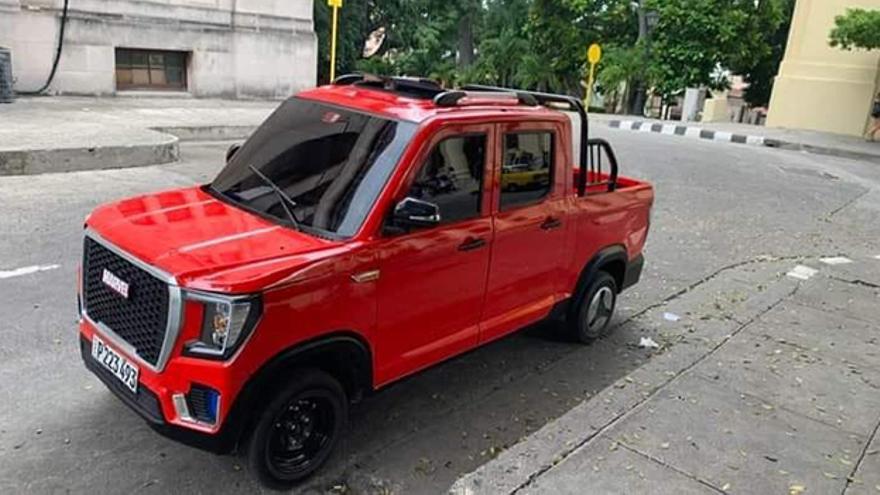
![]() 14ymedio, Havana, 25 May 2023 — The U.S. Embassy in Havana has been forced to rent “numerous” electric cars, made in China, from the Cuban Government due to the fuel shortage on the Island, an anonymous State Department official confirmed to the Miami Herald. In a statement sent to the newspaper, the institution said that it will “continue to do so until the crisis subsides” and they can use their own vehicles.
14ymedio, Havana, 25 May 2023 — The U.S. Embassy in Havana has been forced to rent “numerous” electric cars, made in China, from the Cuban Government due to the fuel shortage on the Island, an anonymous State Department official confirmed to the Miami Herald. In a statement sent to the newspaper, the institution said that it will “continue to do so until the crisis subsides” and they can use their own vehicles.
Last April, the fuel crisis in Cuba worsened, attributed by the Government of Díaz-Canel to the non-compliance with the agreements of its main suppliers. Although several oil tankers have entered ports in recent weeks, the supply has not been sufficient to meet national demand, and several production lines remain out of service.
The U.S. official explained to the Miami Herald that they simply use the Chinese vehicles because “there are no electric cars made in the United States in Cuba available for rent.”
The U.S.-Cuba Economic and Commercial Council, based in New York, said that the diplomatic headquarters leases four cars and mentioned the tensions between Washington and Havana that prevent U.S. companies from sending vehicles to the Island.
The Council, led by businessman John Kavulich, said that in 2017 the Office of Industry and Safety (BIS) issued the first license to Premier Automotive Export (PAE), based in Maryland, to export an electric vehicle and a charger to the U.S. Embassy on the Island. However, in January 2022, the Undersecretary of State, Brian A. Nichols, rejected an offer from the company for a donation of four battery chargers to the diplomatic headquarters.
At the end of September 2022, the U.S. Department of Commerce issued an authorization to Premier Automotive Export to export motorcycles and electric skateboards, which can be purchased by residents and private companies of the Island.
However, John Felder, director of the company, confirmed to the Miami Herald that they have not been able to export a single vehicle to private companies because the requirements of the Cuban government have delayed the process.
In its Cubatrade blog, the Council explains that the fees for sending an electric vehicle through a financial institution represent a “substantial percentage” of the price of the car, which also hinders export operations.
The ties of cooperation between Havana and Beijing are increasingly close, as are those with Russia. Chinese companies have had preferential treatment from Havana to ensure their incursion into the Cuban market and enjoyed the use of facilities to install the automobile assembly plant in 2019 by the Tianjin Dongxing Industrial and Commercial Group, in partnership with the Cuban state company Minerva.
The official press published last January that since opening the joint venture, called Electric Vehicles of the Caribbean (Vedca), located 15 kilometers from the center of Havana, it has manufactured 2,500 motorcycles, 1,500 tricycles and 1,000 children’s cars, whose sales exceed six million dollars. Cubadebate explained at that time that the Chinese part represents 58% of the investment with the contribution of technology and equipment, while the Cuban counterpart offers the installation and remodeling.
Translated by Regina Anavy
____________
COLLABORATE WITH OUR WORK: The 14ymedio team is committed to practicing serious journalism that reflects Cuba’s reality in all its depth. Thank you for joining us on this long journey. We invite you to continue supporting us by becoming a member of 14ymedio now. Together we can continue transforming journalism in Cuba.
